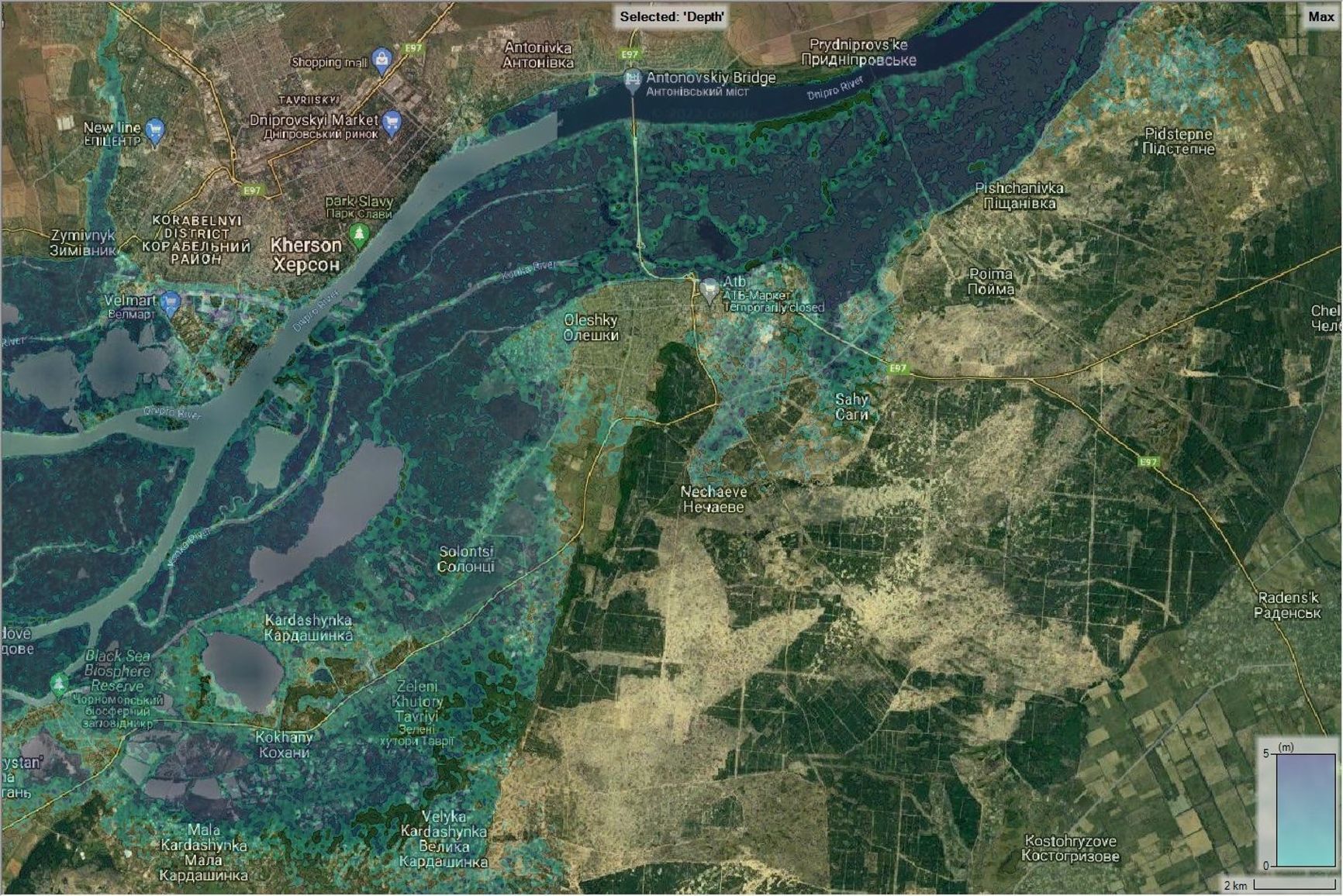
Ukraine’s Operational Command South has reported that Russian troops have destroyed the dam of the Nova Kakhovka Hydroelectric Power Plant (HPP). The Russia-installed “mayor” of occupied Nova Kakhovka, Vladimir Leontiev, said that “around 2 a.m., a number of numerous strikes were carried out on the Kakhovka HPP.” Leontiev did not say who carried out the strikes.
Oleksandr Prokudin, head of the Kherson Regional Military Administration (OVA), said the water would reach a “critical level” in five hours. Ukrainian President Volodymyr Zelensky convened an emergency meeting of the National Security Council, and issued a statement blaming Russia for the damage.
“The destruction of the Kakhovka hydroelectric power plant dam only confirms for the whole world that they must be expelled from every corner of Ukrainian land,” Zelensky wrote on the Telegram messaging app.
The dam is located from Kherson upstream of the Dnipro near the mouth of the North Crimean Canal. The explosion of the dam could affect the water supply of occupied Crimea.
The Nova Kakhovka Hydropower Plant and dam have been struck by ordnance more than once, with the destruction of the dam predicted as early as the fall of 2022. On November 12, a video of a blast on the Nova Kakhovka HPP automobile bridge was posted online. Experts interviewed by The Insider noted that the destruction of the dam made no military sense for Ukraine. At the same time, predictions were made at the time that Russia might take the step if it was forced to abandon the right bank of the Dnipro in Kherson, which eventually happened.
Major General Viktor Yahun, former deputy chairman of Ukraine’s Security Service (SBU), then told The Insider that there was a small section of the bridge in the Kakhovka Reservoir near the power plant where Russian troops had sunk several rail carriages with crushed rock. It is unknown whether these cars contained explosives and whether their detonation was planned.
Ukrainian military expert Serhii Hrabsky noted that the destruction of the dam is not beneficial for Russia either due to the North Crimean Canal, which will eventually dry up and leave Crimea without water.
In October 2022, the Swedish hydrological engineering company Dämningsverket conducted a simulation of the possible consequences of the destruction of the Kakhovskaya HPP. The Swedish journalist Lars Wilderang published a map created by the engineers, which shows further waterlogging of areas on the right and left banks of the Dnipro downstream. The modeling was carried out with the help of the US Army Corps of Engineers’ (USACE) HEC-RAS 6.3 software. The company’s experts noted that the water level behind the dam is 13 meters above the Dnipro river downstream, and according to their forecasts, the water could overflow to about 200 meters on both sides in the course of one hour.

Modeling of the worst case scenario of the Nova Kakhovka Dam forecasted that in 19 hours, a wave up to 4-5 meters will fall on the Antonivka bridge east of Kherson, washing out the Ingulets river. Flooding will carry on furhter along the Bug river, reaching Mykolayiv in 4 to 5 days.
The demolition of the Nova Kakhovka Dam is a war crime under the Geneva Convention.
The dam, 30 metres (yards) tall and 3.2 km (2 miles) long and which holds water equal to the Great Salt Lake in the US state of Utah, was built in 1956 on the Dnipro river as part of the Kakhovka Hydroelectric Power Plant.
The dam supplies water to the Zaporizhzhia Nuclear Power Plant (NPP), which is under Russian control and which gets cooling water from the reservoir.
The International Atomic Energy Agency (IAEA) said there was no immediate nuclear safety risk at the Zaporizhzhia NPP due to the dam failure but that it was monitoring the situation closely. The head of the plant also said there was no current threat to the station.
This is a developing story.